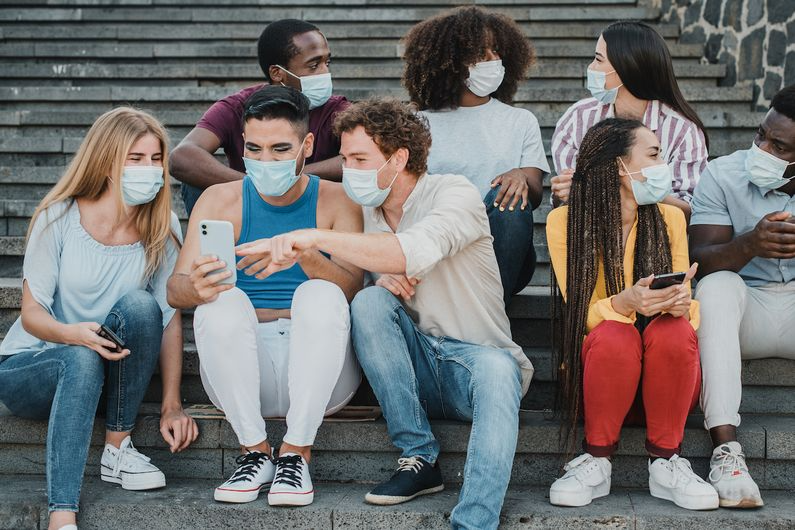COVID-19 Can Be Less Stressful For The LGBTQ+
For lesbian, gay, bisexual, transgender and queer (LGBTQ+) people, the COVID-19 pandemic has brought a lot of inequities faced by their community to the fore, including the precarious state of their mental health.

Researchers at Université de Montréal find that social support among LGBTQ+ community members – sometimes called “chosen families” - can help them better cope psychologically with the pandemic.
For lesbian, gay, bisexual, transgender and queer (LGBTQ+) people, the COVID-19 pandemic has brought a lot of inequities faced by their community to the fore, including the precarious state of their mental health.
As they’re more likely to live alone than heterosexual individuals, they’re also more vulnerable to anxiety, depression, self-harm and substance abuse. But there’s an upside as well: LGBTQ+ people may actually be better placed than most to get help from their community.
Indeed, a study by researchers at Université de Montréal suggests that social support among LGBTQ+ community members – sometimes called “chosen families” - can help them better cope with stress and crises.
In an online survey, the researchers looked into the mental health and social support of just over 2,900 sexually and gender-diverse and heterosexual cisgender people during the first three months of the COVID-19 crisis in Quebec in 2020.
Published in LGBT Health, the results confirm that LGBTQ+ people experienced more symptoms of depression and anxiety, more loneliness, and more stress than heterosexual cisgender participants. Bisexual and asexual individuals reported the most stress.
But there was also a nice surprise.
Four times more strongly
The researchers found that among LGBTQ+ people, social support mitigated the effect of stress on depressive symptoms four times more strongly than among heterosexual cisgender individuals.
“This really highlights the importance of visibility and connectedness for LGBTQ+ communities,” said Robert-Paul Juster, an UdeM medical professor and researcher at the Institut universitaire en santé mentale de Montréal.
“Providing opportunities for LGBTQ+ people to come together and support each other gives them access to more resources to deal with crisis situations,” said Juster, who supervised the work of clinical-psychology doctoral student Silke Jacmin-Park, the study’s first author.
“Even though LGBTQ+ Quebecers overall have poorer mental health, thanks to their community they seem better equipped to stave off depression when something like a pandemic hits – and the way they do that is through their chosen family,” she said.
“It’s the kind of good news we need right now. It is a story of resilience and competency in a crisis, through social support.”
Publication: Silke Jacmin-Park, et al., Mental Health and Social Support of Sexual and Gender Diverse People from Québec, Canada During the COVID-19 Crisis, LGBT Health (2022). DOI: 10.1089/lgbt.2021.0255.
Original Story Source: University of Montreal

 Alerts Sign-up
Alerts Sign-up